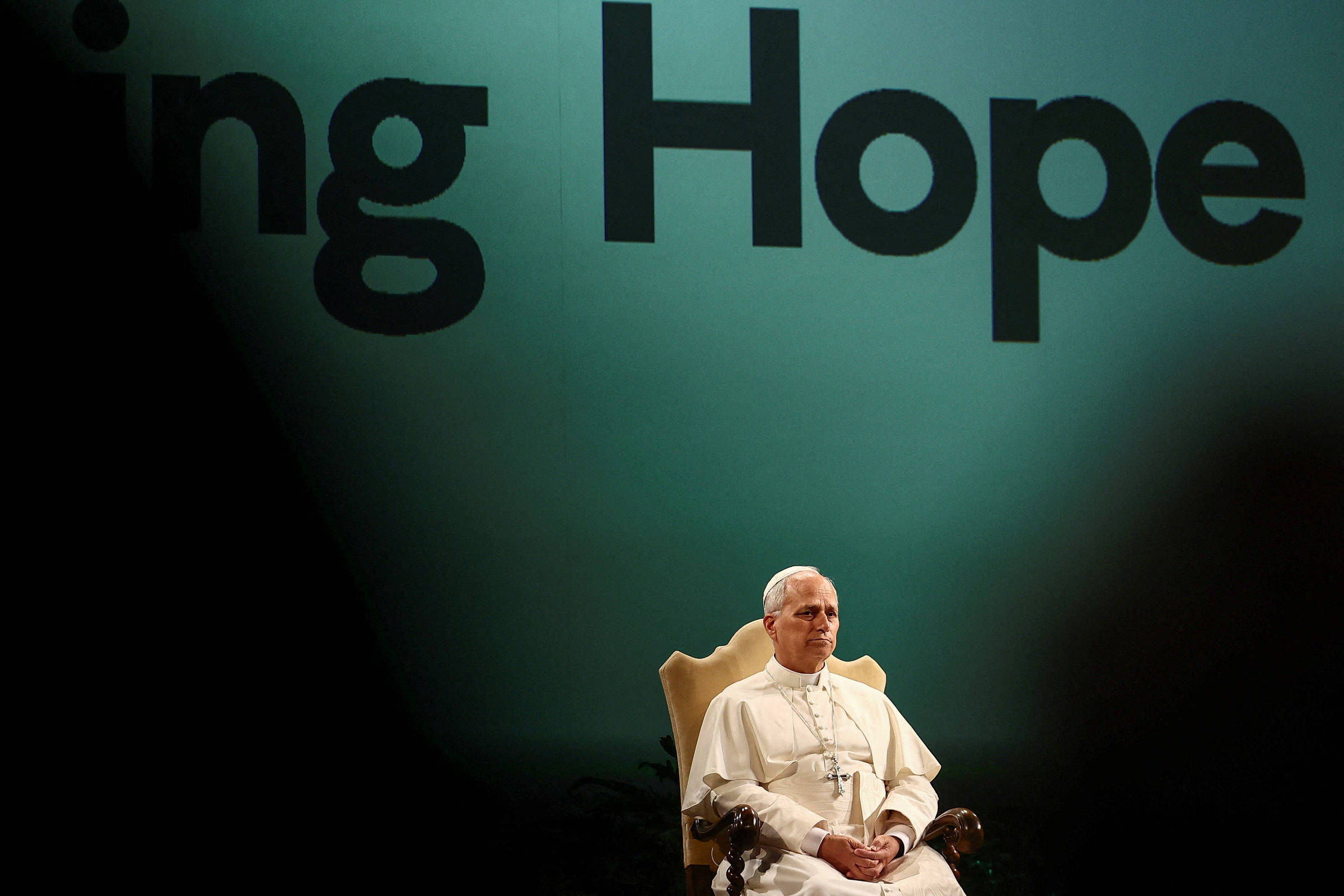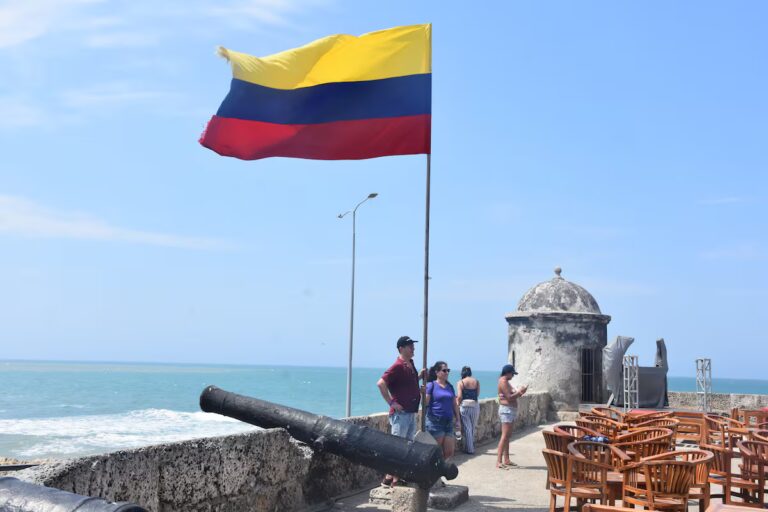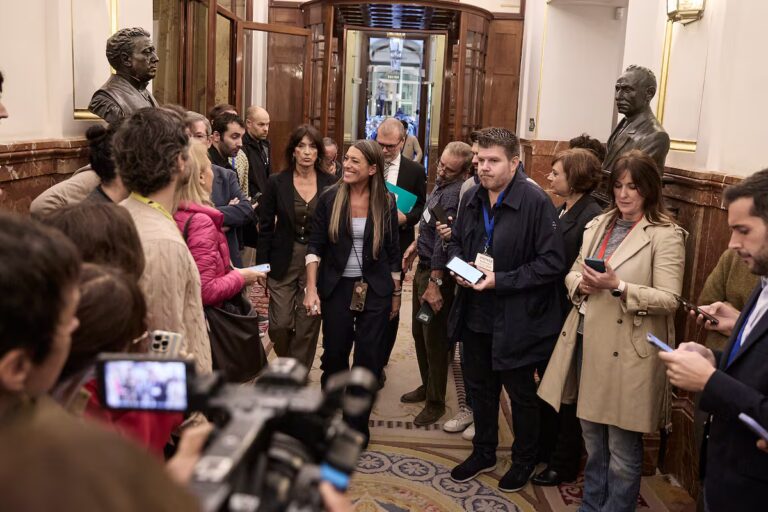
The bounty of meltwater from Greenland’s ice floes may seem strange. But that’s exactly what happened at Castel Gandolfo in the Vatican on October 1, when Pope Leo XIV blessed some of the liquid symbolizing the melting of glaciers due to global warming.
The water traveled to Belém in the state of Pará and arrived this Wednesday (12th) at COP30, as part of the Catholic Church’s agenda at the United Nations Climate Change Conference.
The pilgrimage, dubbed “From Greenland to the Amazon,” began by visiting Brazilian shrines such as Aparecida do Norte (SP) and Christ the Redeemer (RJ) before arriving at the Cathedral of Our Lady of Nazareth in Belem.
The idea to celebrate ice blocks carved from Greenland’s receding glaciers came from artist Olafur Eliasson and geologist Minik Rosing. The polar water was brought to the Vatican by organizers from the Laudato Si Movement, an organization of Catholic climate change activists.
The movement’s name comes from the encyclical Laudato Si, published ten years ago. This environmental charter, written by Pope Francis, received a great response at COP21, the climate conference held in France in 2015.
It is precisely the Paris Agreement, signed a decade ago, that negotiators are seeking to salvage at COP30, as signatories have failed to meet their proposed national goals. Over the course of this journey, the summit in Belem established a global ethical balance and provided an official platform for religion at the climate conference.
The Catholic Church has a strong presence at COP30, and is officially represented by Cardinal Pietro Parolin, Secretary of State of the Holy See. The Anglican delegation includes 10 members from the Holy See, as well as eight cardinals, 47 bishops, and 97 other church officials.
The CNBB presidents include Cardinal Jaime Spengler (president), Don Joao Giustino (first vice president), Don Paulo Jackson (second vice president), and Don Ricardo Hopels (general secretary). Coordination for COP30 was comprised of the CNBB, the Pan-Amazonian Network of Churches (Repam), the Brazilian Congress of Religions (CRB), Caritas Brasileira, and the Laudato Si Movement.
A highlight of the clergy’s activities was the symposium “Pathways to an integrated ecology for climate justice and ecological transformation” held on Wednesday.
The table, mediated by Dom Vicente de Paula Ferreira, Secretary of the CNBB General Ecology and Mining Special Committee, was attended by the Minister of the Environment Marina Silva, the scientist Ima Vieira (Museo Goeldi/MCTI), and Cardinal Leonardo Steiner, Archbishop of Manaus, accompanied by cardinals from each continent.
Dom Vicente Ferreira, an expert on the impact of mining in Brazil, emphasized this in an interview. sheetthe Church’s opposition to oil exploration in the Foz do Amazonas Basin. In October, Petrobras received permission to explore for oil off the coast of Amapá, part of the so-called equatorial margin.
He said the environmental license granted a few weeks ago by Ibama (Brazilian Institute of Environment and Natural Resources) is inconsistent with the COP’s desire to “implement”. For Dom Vicente, the safety net offered by Ibama is a “false solution.”
“We will demand from the Brazilian government a firm stand in the defense of our forests, waters and biodiversity,” he said, commenting on President Lula’s proposal to use resources from oil exploration for the energy transition, which was part of his COP30 opening speech.
His message to Brazil’s president is not to succumb to pressure from large multinational corporations. “And change your development vision to take into account the rights of nature,” he added.
Dom Vicente Ferreira also highlights the Jesuits’ campaign at COP30 to cancel the external debt of developing countries. The idea is that debt cancellation is tied to these countries’ more ambitious mitigation goals.
The CNBB’s Secretary for Integral Ecology and Mining said, “What northern countries are doing to countries in the Global South is colonialism.” “Debt is unfair,” he says.
In this religious figure’s view, “our wealth is the cause of our poverty,” and he criticizes investment, primarily in mining and agribusiness. For him, the reward should be expanded incentives for agroecology, the farming model championed by environmentalists.



